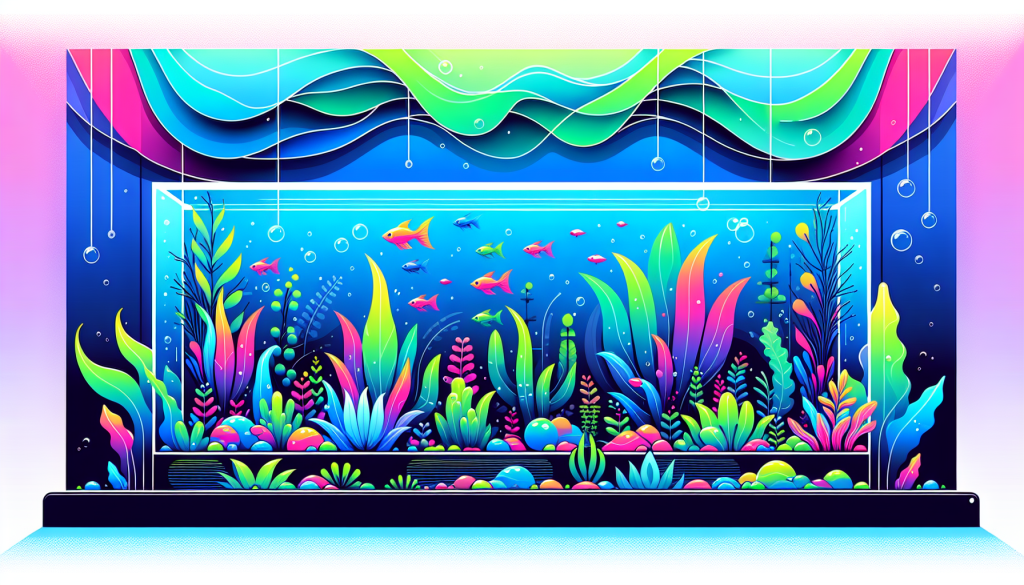Common Mistakes with Judge Interview and How to Avoid Them
Participating in aquascaping competitions, whether as a contestant or judge, is an exciting way to engage with the global aquascaping community. If you’re preparing for a judge interview—whether your goal is to become a certified judge or simply understand the evaluation process—there are several pitfalls to avoid. In this article, we’ll break down the most common mistakes during judge interviews and share practical tips on how to steer clear of them, ensuring your aquascaping passion leads to confident, knowledgeable judging.
Why the Judge Interview Process is Important in Aquascaping
The judge interview is a crucial step in maintaining the integrity and credibility of aquascaping competitions. Judges help set standards, offer constructive feedback, and ensure that every aquascape is evaluated fairly. Understanding common mistakes in the interview process can help both aspiring judges and competitors prepare and perform their best.
Top Mistakes When Interviewing for an Aquascaping Judge Role
1. Not Knowing Standard Aquascaping Criteria
Aquascaping competitions like the International Aquascaping Contest follow well-defined scoring criteria: composition, use of plants, hardscape arrangement, health of aquarium livestock, and overall impression. Failing to study and understand these evaluation points can leave interviewers unimpressed and jeopardize your qualification.
- How to avoid: Review official contest guidelines. Study previous winners’ works and judges’ comments. Brush up on concepts like the golden ratio in aquascaping and basic aquatic plant care.
2. Lacking Practical Aquascaping Experience
Theoretical knowledge is important, but hands-on experience counts. Some interviewees make the mistake of focusing solely on theory, neglecting the practical aspects—setting up a tank, managing algae, or maintaining water parameters.
- How to avoid: Maintain your own display tank. Take part in local or online contests. Document your aquascaping journey and reflect on your process and mistakes.
3. Failing to Communicate Clearly
Judges are expected to provide insightful, articulate feedback. Mumbled answers or overusing jargon can undermine your credibility and frustrate aquascapers eager to improve their setups.
- How to avoid: Practice explaining aquascaping concepts to friends or by recording yourself. Aim for clear, concise, and accessible language, especially when discussing plant species and technical aspects.
4. Overlooking the Importance of Impartiality
Another common pitfall is showing unconscious bias—favoring certain styles, species, or even acquaintances. Judges must remain neutral to ensure fair assessments.
- How to avoid: Familiarize yourself with a variety of aquascape styles—Nature Aquarium, Iwagumi, Dutch, and Biotope. Approach each interview question with an open mind and reference objective contest rules rather than personal preference.
5. Poor Time Management During the Interview
Interviews often involve analyzing aquascape photos under time limits. Waffling or focusing too long on minor issues suggests a lack of decisiveness, which can be detrimental in competition scenarios.
- How to avoid: Practice timed evaluations. Learn to quickly spot strengths and weaknesses in aquascape designs, and allocate your commentary time efficiently.
Preparation Tips for Passing the Aquascaping Judge Interview
- Study aquascaping fundamentals: Refresh your knowledge by exploring our Beginner Aquascaping Guide and advanced tutorials.
- Connect with experienced judges: Join aquascaping forums and participate in Q&A sessions hosted by respected professionals.
- Stay current with trends: Aquascaping is an evolving art. Subscribe to our blog for updates on aquascaping contests, latest layouts, and industry innovations.
- Mock Interviews: Arrange mock interviews focusing on tricky scenarios such as controversial layouts or tanks with borderline rule violations.
- Ethics and objectivity training: Read up on judging ethics to reinforce the principles of fairness and confidentiality.
What Happens After the Judge Interview?
If you pass your interview, you may need to shadow experienced judges or complete practical assessments. Every competition has unique requirements, so ask your organization about next steps. Remember, learning as a judge is a continuous process—your decisions shape the aquascaping community!
Key Takeaways
- Understand official judging criteria and keep your knowledge up-to-date.
- Balance theory with real-world aquascaping experience.
- Practice clear and unbiased communication at all times.
- Use time efficiently during evaluation exercises.
- Continue learning and engaging with the aquascaping community.
Ready to Excel as an Aquascaping Judge?
Becoming a judge is a rewarding way to contribute to the growth of aquascaping worldwide. By preparing effectively and sidestepping these common mistakes, you’ll boost your confidence and set a shining example for others. For more expert tips, advanced aquascaping guides, or to stay updated about upcoming contests, contact us or explore more resources at Aquascaping Academy.
Are you passionate about aquascaping? Share your judging experiences or questions in the comments below, and connect with our thriving aquatic community!



